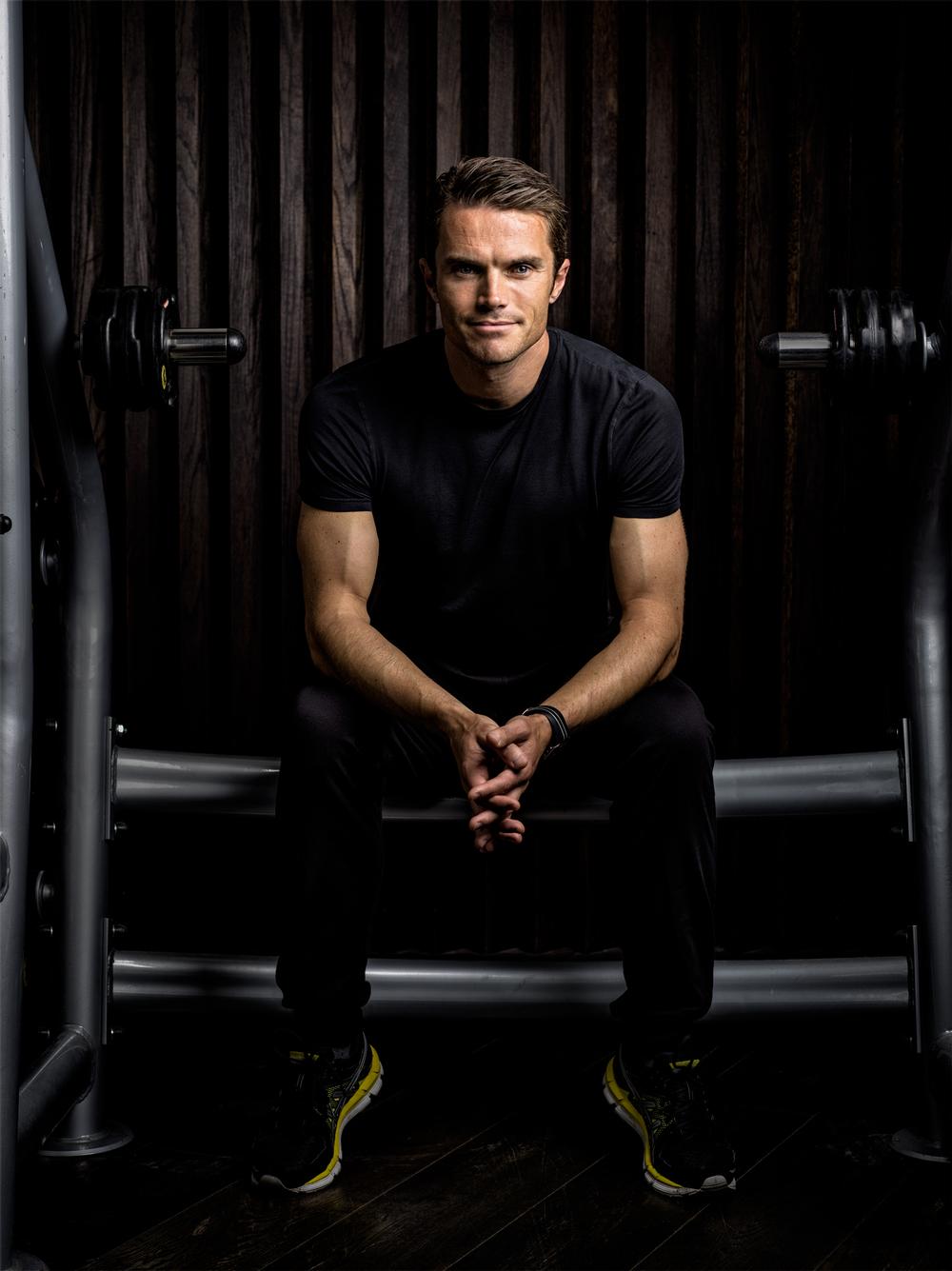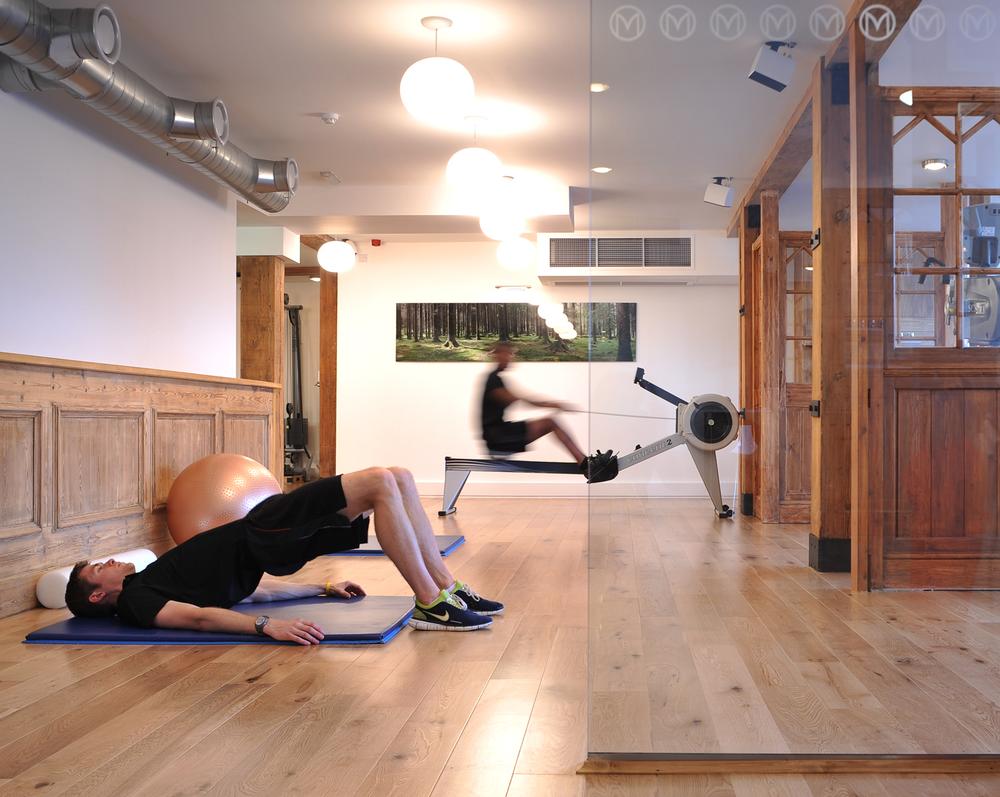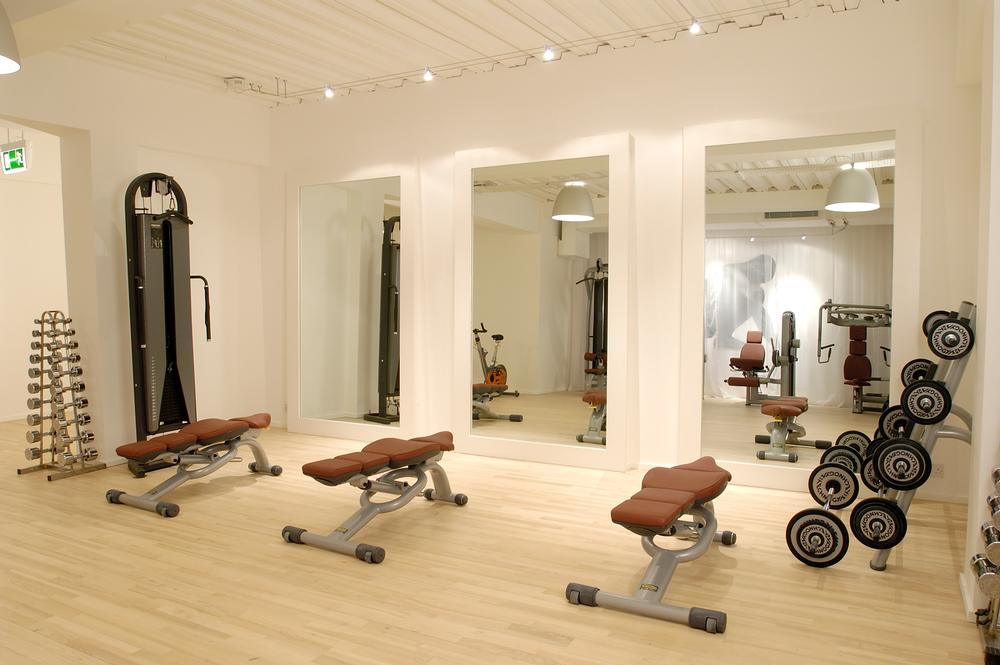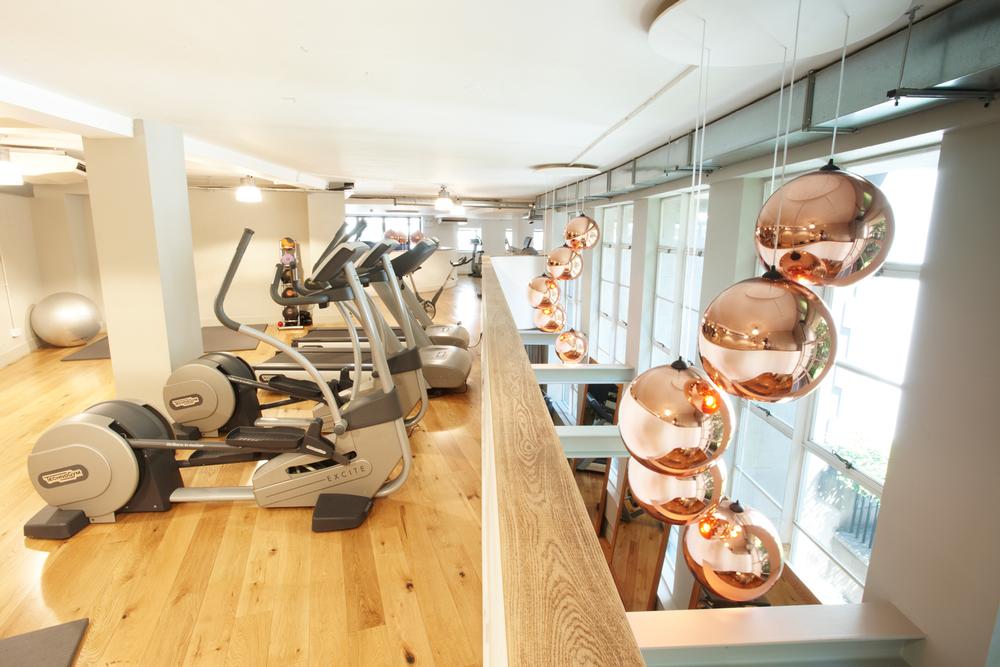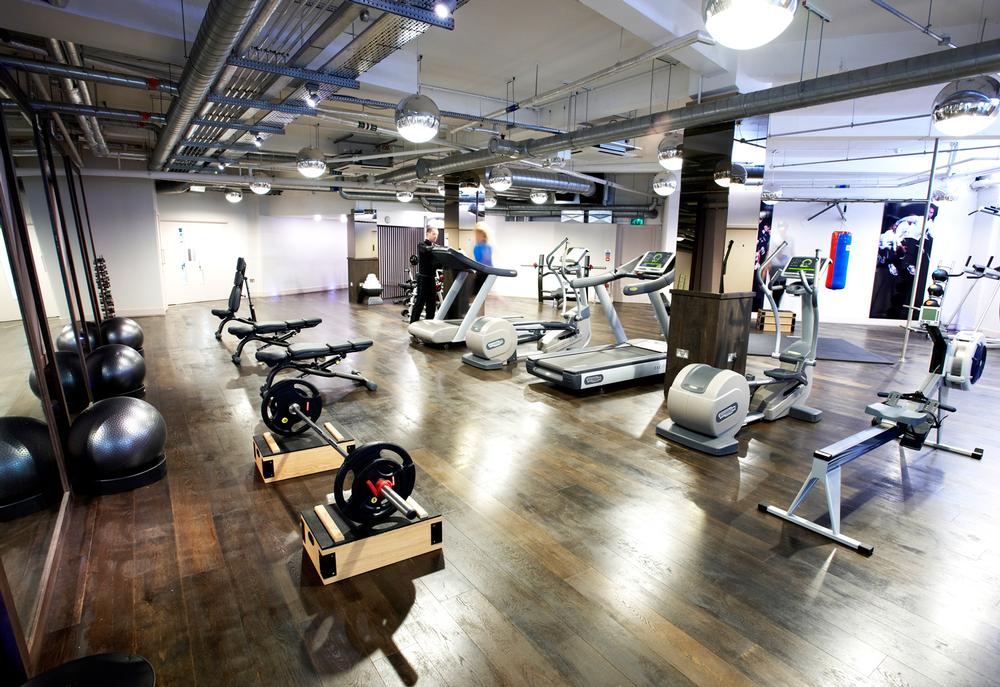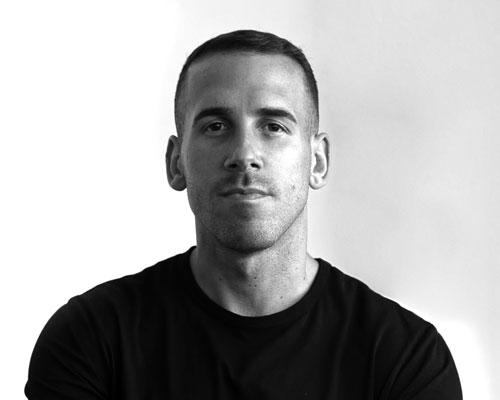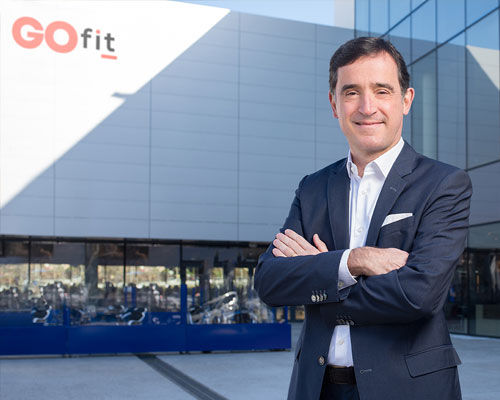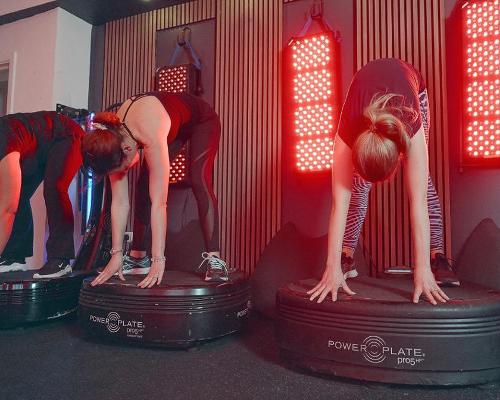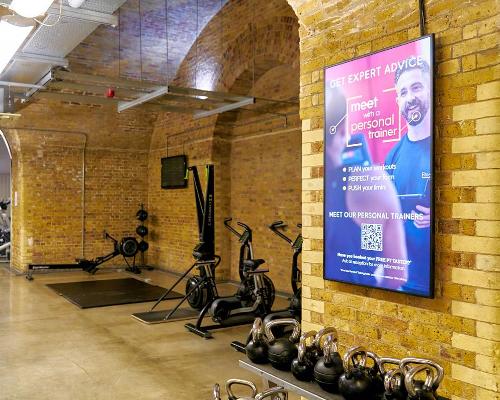features
Interview : Matt Roberts
Kate Cracknell talks to the fitness entrepreneur about data-based training, personalisation and driving a health-focused message
“It’s not about gyms any more. It’s about people, about professionals,” says renowned personal trainer and industry spokesperson Matt Roberts.
“The industry is in a very interesting phase and operators have to really focus. They have to reinvent themselves, figure out what their product is and how that fits into someone’s overall pattern of activity.
“I believe it’s about great professionals delivering great information in any setting, with the gym being just one of those.”
Imparting information
Rewind to 1995, when the then 22-year-old Roberts opened his first PT studio in London’s upmarket Mayfair area, and it’s clear this sort of knowledge gathering and dissemination has been at the heart of his vision from the outset.
“I grew up around sport – my dad was a footballer and I was a sprinter – and I loved competing. I competed at a high level as a junior. But even at the age of 15, the fascination for me lay in the physiology, the biomechanics, how to make the body perform better.
“Even at that young age, I was very clear that the industry needed fantastic personal training venues filled with amazing trainers, with nutritionists and physiotherapists on-hand, doctors on-call for consultations and so on, so that Joe Public could benefit from the sort of training I’d enjoyed. My idea was to create genuinely inspiring venues – creative spaces with a more bespoke offering that were more in-tune with what people really wanted to experience at a gym.
“Aged 22, I found a location in the middle of Mayfair – an abandoned art gallery in what was then a little recession. I convinced the landlord I was a good bet to take the space on and jumped straight in.”
He continues: “Our USP – and I say ‘our’, although of course it was just me at that stage, because there was a big company mindset even then – was the same then as it is now: a focus on delivering high-end scientific information in a very user-friendly, intuitive way through staff who understand the client, and who don’t necessarily conform to the normal perceived view of what a gym instructor might be. From day one, I recruited people into my training team who were very worldly, highly educated, articulate and who understood how to tap into the mindset of the client.
“We created a setting that’s private, very bespoke, very much a reflection of the user’s home rather than a conventional gym space. Clients come to us feeling comfortable and secure, safe and looked after, but also informed. That’s proved to be an incredibly powerful combination.”
Growing the brand
The business has grown steadily since the opening of that first facility. There are now five Matt Roberts clubs in London: four owned and one operated by Roberts’ trainers in the Belgravia-based private ladies’ club, Grace. A sixth location is set to open at the Forte Village in Sardinia this month. Retreats are also available – in the UK, and imminently in Sardinia – offering personalised exercise, nutrition and pampering to small groups of clients.
So how easy it is to grow a PT business where the owner is, as Roberts himself acknowledges, the brand? He explains: “If you’re a trainer and the company is your brand, the danger you face is that people only want to train with you – that they call and ask to train with you specifically. But at my clubs, 99 per cent of the time they don’t. People just want to come and train with a Matt Roberts trainer – someone doing the method I’ve created. For me, that’s the measure of brand success.”
So how has he achieved this? “We have phenomenal internal training processes and a great marketing and PR division. We make sure each thing we do is creative and innovative, and we give every employee an opportunity to be involved, to be part of the story rather than just a cog in a machine. We make sure the team really understands the brand so they can act as ambassadors and help take our company story to the broader public.”
But it’s not only the club portfolio that has grown: Roberts has also had great success with brand extensions such as nutritional supplements, fitness products, books and DVDs. “As well as opening multiple locations, the plan from day one was to take the brand and leverage it into new areas,” says Roberts. “To do that, you have to create a trusted brand people buy into, where they know they can get reliable information. I only do things that are core to the brand, that I believe in, and that I would use myself.”
Tracking trends
The latest new initiative will see Roberts launch a standalone small group training concept, MX, over the next eight to 12 months, with a view to opening four or five locations over the coming year to two years. “I don’t want to go into great detail yet, but it’s going to be an interesting take on small group training in zones – a quick way to get results at a lower price point than we charge for PT,” says Roberts.
He continues: “The industry has moved away from mass market clubs. The US has been struggling for a long time, with all the big players having to reinvent the wheel over and again to make use of their massive buildings and all the CapEx on their equipment.
“What the public actually wants is something more like one-to-one training, except they can’t all afford it. Small group work is that next step towards it, giving more flexibility over how you construct your week’s exercise. Rather than going to one club and doing the same old thing, you pick and choose at a few different clubs. In the US, SoulCycle has been a massive hit, there are various pilates formats going on, there are boot camps and so on. That’s going to happen increasingly in the UK too, and the model clubs will therefore have to implement will be a small group approach inside their clubs.”
So has the offering at Roberts’ own clubs had to change over time?
“We have a development team that analyses any new trends, and it’s certainly a case of constant evolution,” he agrees. “The current ‘hot ticket’ items of functional training and high intensity training aren’t really new: that’s the way I’ve always trained my clients. However, I’d say our gyms are less filled with machines than they’ve ever been. There’s far more open space, more functional training space than ever before. We’ve actually been taking machines out, so there’s much more work with suspension training, kettlebells, functional training movements, primal movements. It’s far more about mobility and flexibility, linking pilates and physiotherapy into the training sessions in a more integrated approach.”
He continues: “We’re doing a lot more sport-specific work nowadays too – there’s increased demand from people to get fit for a real purpose – and that’s bringing us closer now to my core philosophy than we’ve ever been. Instead of people coming in saying they want to get fit, they’re telling us they want to get fit because they’re going to do a Mont Blanc climb or go on a skiing expedition.
“For me, one of the biggest things that will happen in the sector as a whole is a massive increase in specificity: far more detailed programming for individuals using things like DNA testing, personal monitoring devices, live data. Programmes won’t be guesswork any more – there’ll be a big drive towards bespoking, through very complex automation, and that’s going to be very significant.”
Data and personalisation
In line with this increased specificity, one of the newer initiatives at Roberts’ clubs is the use of DNA testing as the basis for personalised programmes. “It gives us more data about our clients: are they power-based or endurance-based, what’s their risk of injury, what’s their uptake of carbohydrates, how do they absorb salt or caffeine, what’s their protein absorption like, what’s their vitamin requirement?” explains Roberts.
Those tests aren’t entirely prescriptive – some measures have been omitted so as not to seem overly intrusive – but as Roberts explains: “They’re a great steer, giving you a very good idea of the direction of travel. They also help you cut out the things people shouldn’t be doing. We know from testing over the last couple of years that we can refine people’s workouts to help them achieve goals they’ve previously struggled with.
“I also think it’s important psychologically that people know they’re going the right way. If you can tell them you’re prescribing the correct approach for them based on their DNA, they’re more likely to stick with the programme.”
Alongside this is Cloud Tag, due to launch later this year, to which Roberts has exclusive rights from a PT perspective. “It’s a device you wear on your body – a personal body monitoring system that links to the cloud and then gives the information back to your phone. It’s essentially an incredible virtual trainer with me as your trainer, using your live data: heart rate, respiration rate, movement and so on.
“For us, information is king. It allows us to make sure we’re delivering specific work for the right people at the right time. This sort of technology will change the way trainers work, but it needn’t stop them working. It just gives them more information, more tools at their disposal to help their client.
“It does change things for anyone without a trainer though, giving them more information and therefore more control. But if gyms are smart, they’ll use the technology to their advantage, interpreting the data and suggesting programme changes to help people reach their goals, not only at the gym but away from it too. It actually offers a way of providing ongoing feedback and care.”
Sector SWOT
If he steps back from his own business and looks at the broader sector, what does Roberts feel are the main strengths, weakness and opportunities to evolve?
“I believe we’ve made gym, fitness and exercise more accessible than it’s ever been, getting more ideas out there, but the sector now needs to cast itself in a more premium light. I don’t mean charging more money – just making sure we’re seen as a bit cooler, sexier, more exciting. A lot of clubs are bland and boring, and people don’t want to go there.
“We also need more women in the sector. Anyone in marketing will tell you that the market is female: if you get women in, you get their partners too. But gym environments are still very male. We have to make them far more female-friendly, and that includes employing female instructors. It’s harder to find female trainers than it is male trainers, but when you do find them, they’re terrific. We have to try and attract more women to the industry, because when they’re good, they’re really good.
“The sector has to be much better at making professionals out of its trainers too – paying them more and giving them a chance to earn a decent living. The industry gets bad press and it’s largely unjustified: there are some very good people and the level of training has improved markedly. However, the sector has to create a far more professional outlook so that going to see a fitness trainer becomes a bit like going to see a doctor – viewed as a valid, central part of someone’s life.
“In line with that, we have to work a lot harder on creating bridges with the true health industry, communicating with doctors, government and the health service to get information out to the whole nation about exercise being a vital component of health.
“There has to be less of an emphasis on short-term solutions. The current focus on HIIT, for example, is actually leaving people not doing enough exercise. We have to communicate that there are set minimums to be achieved in terms of intensity and duration of exercise. Right now, I think the media – and our message to the media – has too much of a focus on ‘eight best ways to get your bum ready for the beach’ or ‘getting your six-pack back after Christmas’. We have to focus on long-term health, and we need to provide medical back-up to drive those messages home.
“That sort of information can be hard for the public to process, but if you’re strict, it can be done. They did it in Finland 30 years ago with a big project that focused on encouraging activity and different eating habits, right down to changing children’s school food. Finland went from having the highest rate of heart disease in Europe to the lowest, as well as achieving the highest activity levels. So it is possible.
“Doctors and health practitioners have a big role to play here, ensuring their message is consistent with what the fitness industry is saying. It happens occasionally, but not enough. Message delivery has to be solid and consistent enough to attract people in.”
